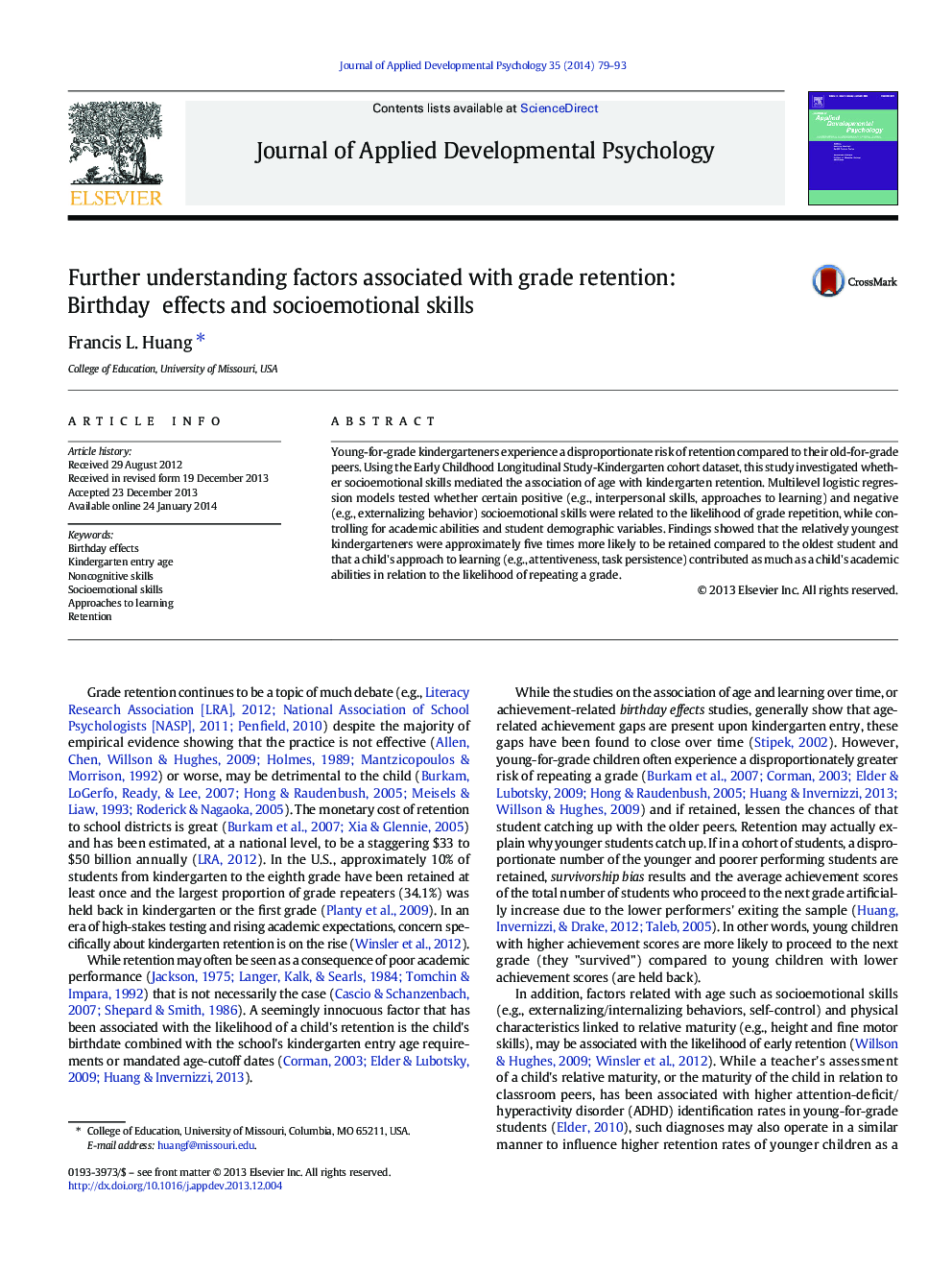| Article ID | Journal | Published Year | Pages | File Type |
|---|---|---|---|---|
| 359723 | Journal of Applied Developmental Psychology | 2014 | 15 Pages |
•Young-for-grade kindergarteners experience a high risk of retention.•Socioemotional skills failed to mediate the association of age with retention.•A child's approach to learning has a beneficial association with retention.•Academic abilities play a large association with retention decisions.
Young-for-grade kindergarteners experience a disproportionate risk of retention compared to their old-for-grade peers. Using the Early Childhood Longitudinal Study-Kindergarten cohort dataset, this study investigated whether socioemotional skills mediated the association of age with kindergarten retention. Multilevel logistic regression models tested whether certain positive (e.g., interpersonal skills, approaches to learning) and negative (e.g., externalizing behavior) socioemotional skills were related to the likelihood of grade repetition, while controlling for academic abilities and student demographic variables. Findings showed that the relatively youngest kindergarteners were approximately five times more likely to be retained compared to the oldest student and that a child's approach to learning (e.g., attentiveness, task persistence) contributed as much as a child's academic abilities in relation to the likelihood of repeating a grade.
